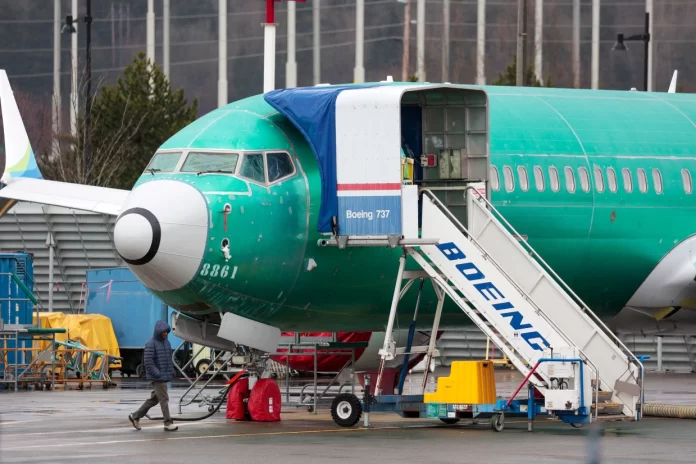John Barnett, a former Boeing employee who had raised concerns regarding the company’s production standards, has been discovered deceased in South Carolina, United States.
Barnett, aged 62 and a dedicated Boeing veteran of 32 years until his retirement in 2017 due to health reasons, was found in his truck within a hotel parking lot.
According to the Charleston County coroner’s office, Barnett’s passing on March 9 resulted from what has been classified as a ‘self-inflicted’ wound, with local authorities conducting investigations into the incident, as reported by BBC News.
The timing of Barnett’s demise coincides with heightened scrutiny surrounding Boeing’s production standards, including those of its key supplier Spirit Aerosystems.
Furthermore, Barnett’s death occurred shortly after the US Justice Department initiated a criminal investigation into an alarming incident involving the detachment of an emergency door panel mid-flight from an Alaska Airlines aircraft in January. Notably, the affected plane was a Boeing 737 MAX. Prior to his passing, Barnett had been actively involved in providing evidence concerning Boeing’s production standards within a whistleblower lawsuit against the aerospace giant.
During his tenure as a quality manager starting in 2010 at Boeing’s North Charleston plant responsible for the production of the 787 Dreamliner, Barnett raised alarming claims. He alleged that production line workers, under severe deadline pressures, were deliberately installing sub-standard parts onto Boeing aircraft. Barnett also asserted that sub-standard parts were being salvaged from scrap bins and improperly fitted onto planes to meet production deadlines.
In a shocking revelation, Barnett disclosed that tests conducted on emergency oxygen systems for the 787 Dreamliner revealed a failure rate of 25%, implying that one in four oxygen masks might fail during a real-time emergency. Despite Barnett’s efforts to address these concerns with management, no substantial actions were taken by the company.
Although Boeing refuted Barnett’s claims, the Federal Aviation Administration (FAA), the primary US aviation regulator, acknowledged some of the concerns raised by Barnett. The FAA identified at least 53 “non-conforming” parts in the factory, categorizing them as lost, and urged Boeing to take corrective measures.
Regarding the oxygen cylinders’ issue, Boeing acknowledged identifying faulty oxygen bottles from a supplier in 2017 but denied their installation on aircraft.
Barnett’s involvement in Boeing’s legal proceedings continued until shortly before his passing. Scheduled for questioning on March 9, Barnett’s absence prompted inquiries, leading to the tragic discovery of his demise in his truck. Expressing condolences, Barnett’s lawyer characterized his death as “tragic,” while Boeing conveyed sadness over the news, extending sympathies to Barnett’s family and friends.
The circumstances surrounding Barnett’s death further deepen the ongoing discourse surrounding Boeing’s production practices, prompting continued scrutiny and calls for accountability within the aerospace industry.



